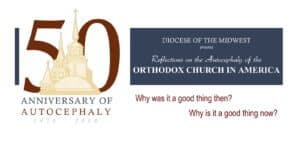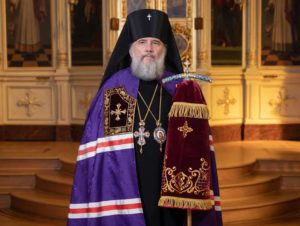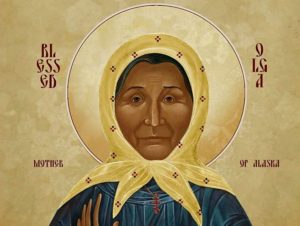PART III
I have been a part of the Orthodox Church in America for more than 35 years and have served in various parish, diocesan and national roles. Our autocephaly remains for me a great gift and a very positive, even necessary development for Orthodoxy in North America. I say this as a lay member of the Church, not as a scholar, historian or expert in canon law.
50 years is not a very long time. Compare this with the 800 years of autocephaly which is being celebrated by the Serbian Orthodox Church this year as well! But, we must also realize the context in which these 50 years has taken place. We really have no precedence for it in all of history. The rise and fall of communism, world wars, and genocides produced huge waves of immigration in a relatively short time span, creating a very complex mixing bowl, a melting pot of Orthodox emigrees seeking to integrate into North American society. The changes in global communication, transportation, technology, medicine, artificial intelligence—the list can go on and on—have been mind boggling. The post-Christian, secular and diverse American scene continues to devolve into madness in so many areas. How does the autocephaly of the OCA fit into all of this? Has it made a difference at all?
Our Orthodox Church in America today looks very different than it did 50 years ago. Consider that just a few decades ago, the use of the English language was rare, parish leadership was a struggle between clergy and church boards, dues were often the only requirement to become a church member “in good standing,” and women were not permitted to be delegates to the All-American Councils. Since the Tomos of Autocephaly (April 10, 1970), so much has changed, so many things have been accomplished. Seminaries distinguished by the outstanding quality of their theological education were established. Clergy formation became a priority. A full liturgical life in parishes blossomed together with monasticism. Educational materials, books of the highest scholarship and quality on Orthodox theology, spirituality and history were published. Liturgical music, in English, is now increasingly available. Parish wide education has been emphasized. All these and more are the fruits of the OCA’s original missionary and evangelical vision: to bring Orthodoxy to North America because this is where we were planted.
Today, the challenges are much different and more difficult to address. Perhaps we have become complacent; perhaps our vision has blurred. How do the accomplishments of the most recent decades compare to those in the early years? Are we unified in our vision on all levels: parish, deanery, diocese, national administration? I would venture to say that most members of the OCA today have no idea how our autocephaly came about and what it means. We need to remember our story and recapture the OCA’s original inspiration to serve as faithful stewards, evangelists, missionaries, in God’s North American vineyard.
My experiences in the last few years have given me a helpful comparison. I have been a professional educator for over 20 years, mostly within public school systems. Last year I became the principal of St. Sava Academy in Chicago, which is an independent Orthodox parochial elementary school. With this shift from a public to an independent school system, I have experienced what I only recently realized is an analogy of our autocephaly. In the public school sector, directives, mandates, initiatives often come from a state legislature which is distant both physically and experientially. The vast majority of these lawmakers has not been in a classroom for decades; indeed, few have had experience teaching and managing an actual classroom at all! As a result, there is often a disconnect. Legislation often does not address the actual needs that are unique to the schools and their students. Misunderstandings and frustrations arise because leadership and those they are leading are not living in the same experiential sphere.
By contrast, in our private, independent setting, the members of our Board of Trustees have intimate knowledge of the day to day running of the Academy. They set policies for a community they know and are a part of. They may not have had actual classroom teaching experience, but they have served St Sava as janitors and secretaries when there was need, and so they have direct, immediate experience of the culture unique to St Sava. Discussion, disagreement and solutions are informed by and relevant to St Sava’s issues and needs because they stem from a shared experience of a common culture.
Similarly, the faithful in our autocephalous Church experience the same societal conditions as our Church leadership, and this naturally produces a common understanding that strengthens relationships throughout all levels of our Church. The leadership of those jurisdictions whose Mother Churches are overseas does not intend, in my opinion, to be distant; but how can leadership not be distant when it lives in a different culture from the faithful it is called to pastor? Being in the same place, experiencing the same shared diverse culture, every member of our autocephalous Orthodox Church in America is able, naturally, to “bear one another’s burdens and so fulfil the law of Christ” (Galatians 6:2) in a way that is much more concrete and empathetic. Following directly from that, this gives to the evangelical mission of our Orthodox Church in America—to bring Orthodoxy to America—the needed base for ministry that can be most effective in making a difference in our secular and diverse American scene.
To be sure, we have been called upon to bear one another’s burdens in the disappointments and hurt over the betrayal of trust that occurred within our Church in the not too distant past; but I believe our autocephaly was a significant reason the entire Body was able to work through these issues effectively and with resilience. What may have been discovered in the vigorous calls for accountability and transparency is that the OCA’s evangelical vision has not died; and, we learned, hopefully, a measure of humility. The positive atmosphere, the hopeful spirit at the last All American Council [St Louis, 2018] were palpable and attest to this resilience, that we can make a difference in our American scene if we will but be faithful to the inspiration of our autocephaly. As an autocephalous Church, we judge ourselves, not others. We know that we are the ones responsible for the growing maturity of our young Church. Metropolitan Theodosius reflected on this after 25 years of autocephaly:
“Right now, we need to focus, not on the success of autocephaly, whether it’s recognized or not, but to concentrate instead on being faithful. This is what is necessary for salvation… Each of us has the responsibility of fulfilling, enhancing and developing what has been given to us. All of us in the Orthodox Church in America are going to be asked by God, “What did you do with what I gave you?” Are we going to say, “Well, they criticized us, they did this, they did that….” No, we have to be the Church…” (emphases mine)
[The Orthodox Church, Vol. 31: 6/7 (June-July 1995), pp. 7-8, 10. The Path To Autocephaly And Beyond: Miles To Go Before We Sleep.]
The same is true today. As an autocephalous Church, each and every member, from our hierarchy to the most recently baptized infant, is in this together. We are part of a Church planted within a specific place and time. We must respond by looking forward, to “run with perseverance the race that is set before us.” (Heb 12:1) Our autocephaly as the Orthodox Church in America makes the diverse culture of North America our culture. Our unified experience of this, our culture, gives us the needed shared experience that enables us to recapture and make effective the original vision that inspired the establishment of the OCA fifty years ago: to bring Orthodoxy to North America; that is, to give a truly American incarnation of the Orthodox Faith that truly makes a saving difference in our diverse American scene.
If we have not appreciated the gift of autocephaly or cared for it as we should have, this 50th Anniversary is an opportunity for us both individually and as the Church to reflect and recommit ourselves to the ‘race’ of that original evangelical vision of the OCA: to bring Orthodoxy to North America. May God help us to renew our commitment to the ‘race that is set before us,’ the original missionary vision that inspired the establishment of our autocephalous Orthodox Church in America; and, in gratitude for this great gift He has given us, may we strive to be good and faithful stewards of the Orthodox Faith here in America, so that we might make a difference here in America in accordance with His will: that all should be saved and come to a knowledge of the Truth.




